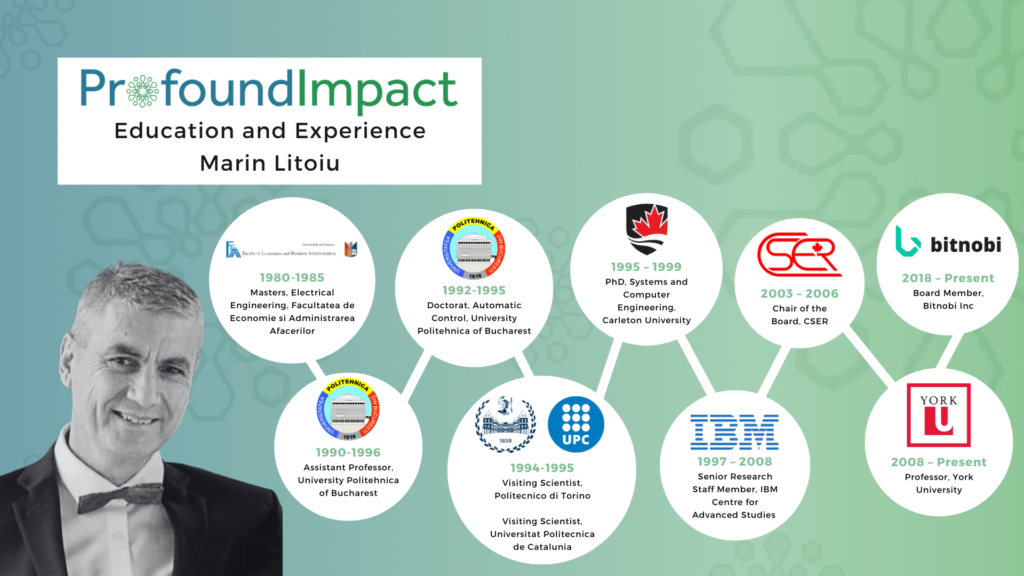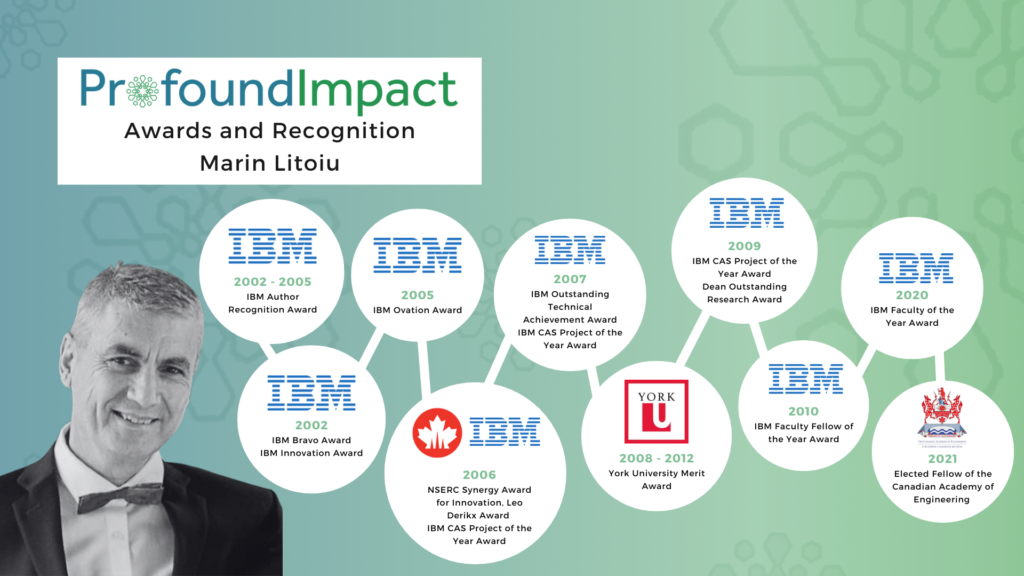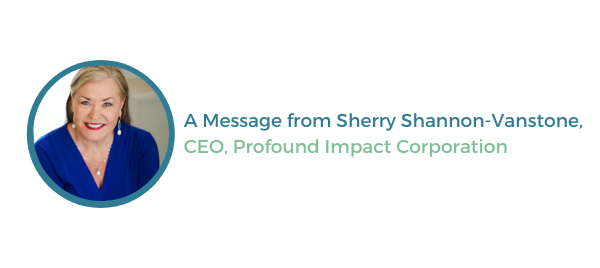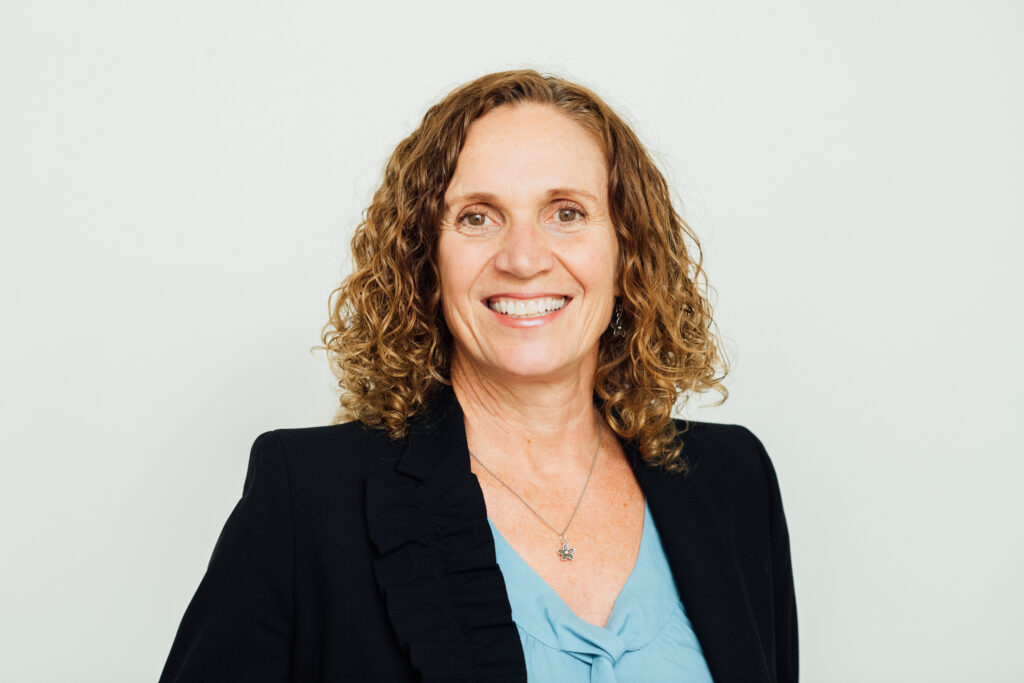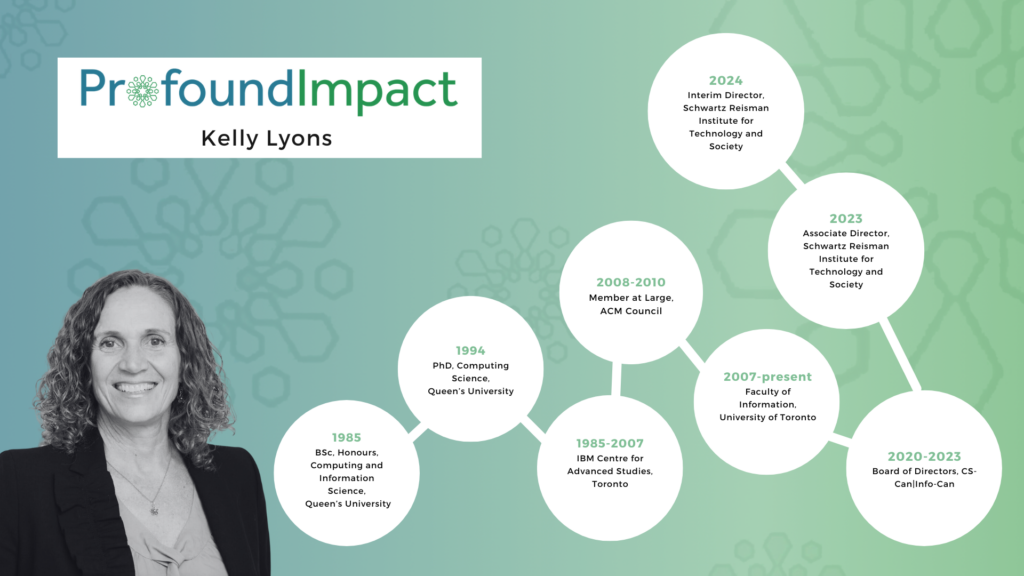Marin Litoiu

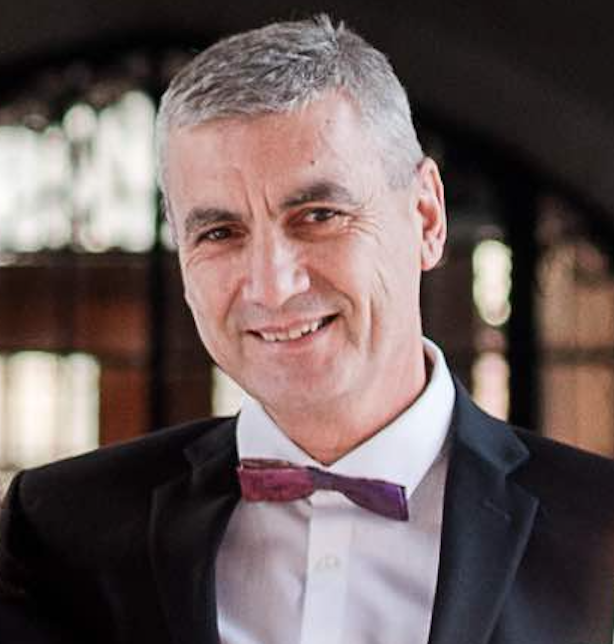
Department of Electrical Engineering and Computer Science, Lassonde School of Engineering
School of Information Technology
York University
As a high school student in Romania, Marin Litoiu was interested in science and mathematics and considered studies and a career in the fields of engineering or medicine. Ultimately, he was curious about and drawn to Computer Science, a relatively new discipline in the country at the time. “There was no doubt that this was the path for me,” says Marin.
Marin Litoiu is a Professor of Software Engineering in the Department of Electrical Engineering and Computer Science and in the School of Information Technology at York University and is a Fellow of the Canadian Academy of Engineering. Recognized as a pioneer in cloud computing, Marin earned a doctorate in Automatic Control at University Politehnica of Bucharest, the oldest and most prestigious engineering school in Romania. He worked there as an Assistant Professor for six years and served as a visiting researcher in Italy and Spain before coming to Canada in 1995 to pursue a PhD in Systems and Computer Engineering at Carleton University. “I arrived in Canada in the fall, so had time to adjust to the Canadian winter,” notes Marin. “As someone who loves sports, I especially enjoyed skating along the Rideau Canal to commute to Carleton.”
Upon completion of his PhD at Carleton in 1999, drawn to the company’s impactful work and the opportunity to understand how large companies operate, Marin joined IBM’s Centre for Advanced Studies (CAS) in Toronto as a Research Staff member. “I had been previously awarded an IBM PhD fellowship in 1997 and was really impressed with the work done at IBM. This was the era of the creation of Deep Blue and its celebrated defeat of reigning world chess champion Garry Kasparov,” says Marin. He worked with CAS for 11 years before deciding to return to academia for the greater freedom it offers to conduct research without constraints, to teach and to create start-up companies. He joined York University in 2008 while retaining his ties to CAS. “The university is the best place for me and I maintain strong ties with IBM through research collaborations and patents,” says Marin.
Marin’s research focuses on methods, tools and platforms that make large software systems more versatile, resilient, energy-efficient, self-healing or self-optimizing. His team of graduate students, postdoctoral fellows, research associates and undergraduate research assistants in the Adaptive Software Research Lab work on projects including adaptive software and autonomic computing, AI and Machine Learning for adaptive software and systems, cloud computing and big data, performance modeling and optimization and in application areas such as the Internet of Things and Cyber Physical Systems.
His role as a researcher has provided Marin with the opportunity to create technology and pass it on to professionals to grow and run. He founded and served as Chief Scientist at Bitnobi Inc., which specializes in privacy-protected data-sharing software that facilitates secure collaboration between data owners and consumers without compromising raw data. Spun out of his research at York University with the support of Toronto Innovation Acceleration Partners (TIAP), Bitnobi was recently acquired by Myant, a global leader in advanced materials and connected health solutions.
In addition to his research and teaching activities, Marin is actively involved in a wide range of professional activities that benefit the international software engineering community. “I am most proud of co-founding the ACM/IEEE Software Engineering for Adaptive and Self-Managing Systems (SEAMS) conference 20 years ago,” says Marin. He serves on the steering committees of international conferences including SEAMS, the IEEE International Conference on Autonomic Computing and Self-Organizing Systems (ACSOS), the ACM International Conference on Performance Engineering (ICPE), and the IEEE CS International Conference on Collaborative Advances on Software and Computing (CASCON). “I am currently working on organizing the ICPE 2025 and CASCON 2025, for which, as the organizing and steering committee chair, I spend a significant amount of time planning the conferences, especially in the initial stages of deciding roles and the budget,” he adds.
Marin has served as Chair of the Board of the Consortium for Software Engineering Research (CSER), an association of Canadian-based researchers and practitioners working on research problems in software engineering. He is the Scientific Director of Dependable Internet of Things Applications (DITA), an NSERC CREATE program that provides interdisciplinary training and research in software engineering for a broad range of Internet of Things Platforms and Applications.
Marin was recognized for his pioneering and outstanding contributions to the design, architecture, and implementation of self-adaptive and self-managing software systems by the Canadian Academy of Engineering (CAE) in 2021 when he was elected as a CAE Fellow. His research has won many awards including the IBM Canada CAS Research Project of the Year Award, the IBM CAS Faculty Fellow of the Year Award for his “impact on IBM people, processes and technology,” three Best Paper Awards and three Most Influential Paper Awards. Marin also received the IBM Outstanding Technical Contribution Award for his research vision on Cloud Computing. He was also recognized by York University’s Lassonde School of Engineering for being named on Stanford’s top 2% of the world’s top researcher list in 2023.
Marin has made exceptional contributions to advancing the research and practice of software engineering in Canada and internationally as an outstanding researcher, a champion of industry-university collaboration, and as an entrepreneur who has successfully commercialized his research for use by the public and private sectors.
